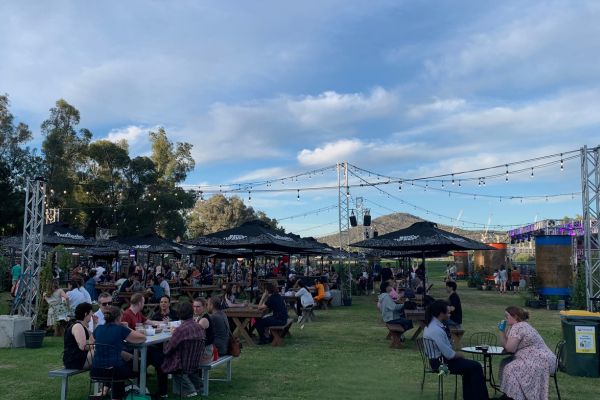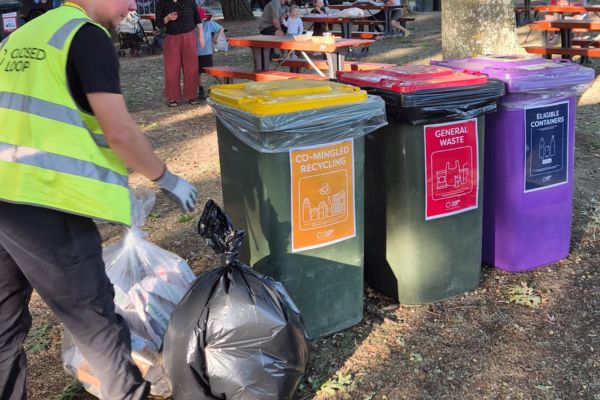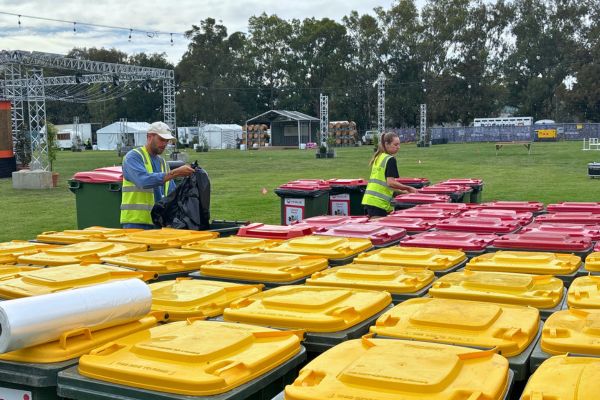Is compostable food packaging right for my business?
What is compostable food packaging?
Compostable food packaging refers to food packaging that is manufactured with plant-based materials such as trees, bamboo or reprocessed sugarcane that are designed to break down into soil when disposed of and processed correctly – in either home compost or a commercial composting facility. Commercial composting is also known as industrial composting. Compostable packaging is not to be confused with biodegradable packaging.
Compostable food packaging is becoming more available today as it provides an alternative to traditional packaging materials like plastic.
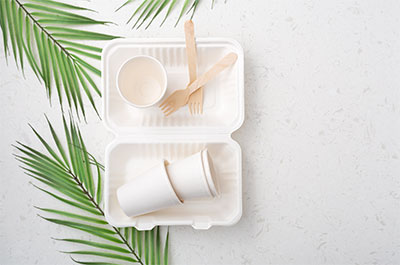
Different types of compostable food packaging
There are two different types of compostable packaging – home compostable and commercially compostable. In Australia and New Zealand the Australasian Bioplastic Association (ABA) manage home and commercial certification. Products, including food packaging, can be marked with certifications such as AS 5810 or AS 4736 for home compostable or commercially compostable, respectively.
Home compostable food packaging
Home compostable packaging can break down in home compost bins or worm farms. Home composting is more accessible to individuals; however, home composts still need a healthy balance of microorganisms, ideal temperatures, ideal moisture levels, oxygen levels and nutrient ratios to decompose into soil with no harmful residue.
Commercial compostable food packaging
Commercially compostable packaging requires a dedicated facility that uses specialised equipment and technology to maintain the ideal temperature, humidity, and airflow required to break down the packaging efficiently and safely in a specific time period. If you are choosing commercial compostable food packaging, check with your commercial composter to see if they accept your food packaging.
When to use compostable food packaging
Compostable food packaging may seem like the most sustainable option (compared to plastic or other alternatives) but it’s important to consider how it will be used, and how it will be disposed of.
For instance, businesses using compostable food packaging for take-away food in public should be mindful of retrieval and transport to a commercial composting facility.
How are you intending to use your food packaging?
Before purchasing compostable food packaging, consider its suitability for you and your consumer. Compostable food packaging may not be suitable for:
- Inner and outer packaging for consumables
- Packaging designed to extend shelf-life
- Packaging designed to protect food produce from air, sunlight and heat
- Sit-down and eat-in application (reusable options may be a better option)
- Applications where individuals will not have access to compost the packaging
As an example, if you use grease-proof paper to line your packaging, recyclable paper/cardboard packaging may be a better option. This is because your food packaging is not going to be contaminated (thanks to the grease-proof paper) therefore it will be a higher value as a recyclable material.
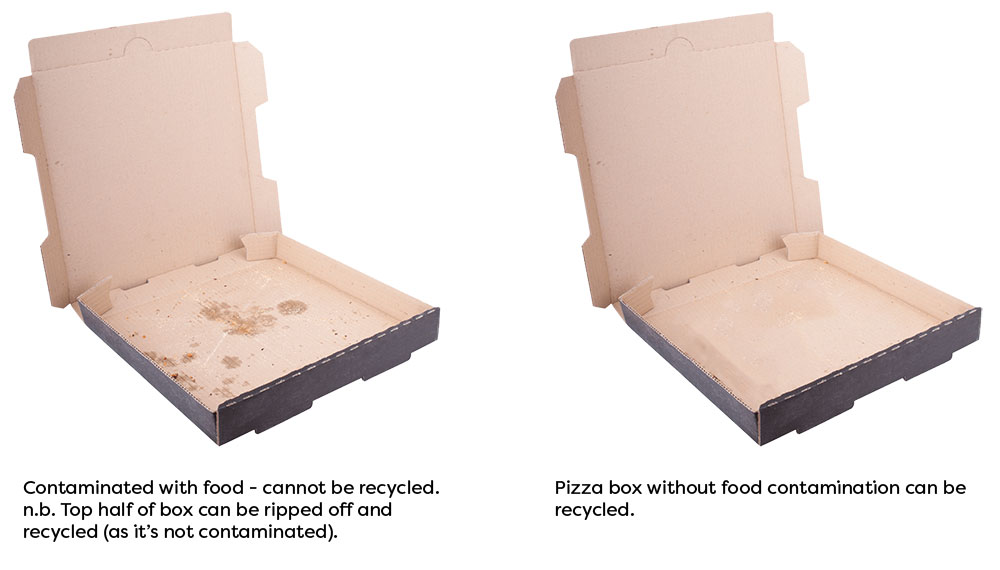
Access to disposal system
Commercial compostable food packaging:
Composting commercial compostable food packaging can only be done so at a commercial composting facility that accepts compostable food packaging. Commercially compostable food packaging may be suitable for you and your customers if you or your customers have access to a commercial composting facility which will accept compostable food packaging.
Home compostable food packaging:
Home compostable food packaging can be composted at home. Providing your customers with information on how to compost your home compostable food packaging at home is a great way to encourage home composting. Otherwise, home compostable food packaging may still be suitable for you if the packaging is collected for home composting, such as through a dedicated collection.
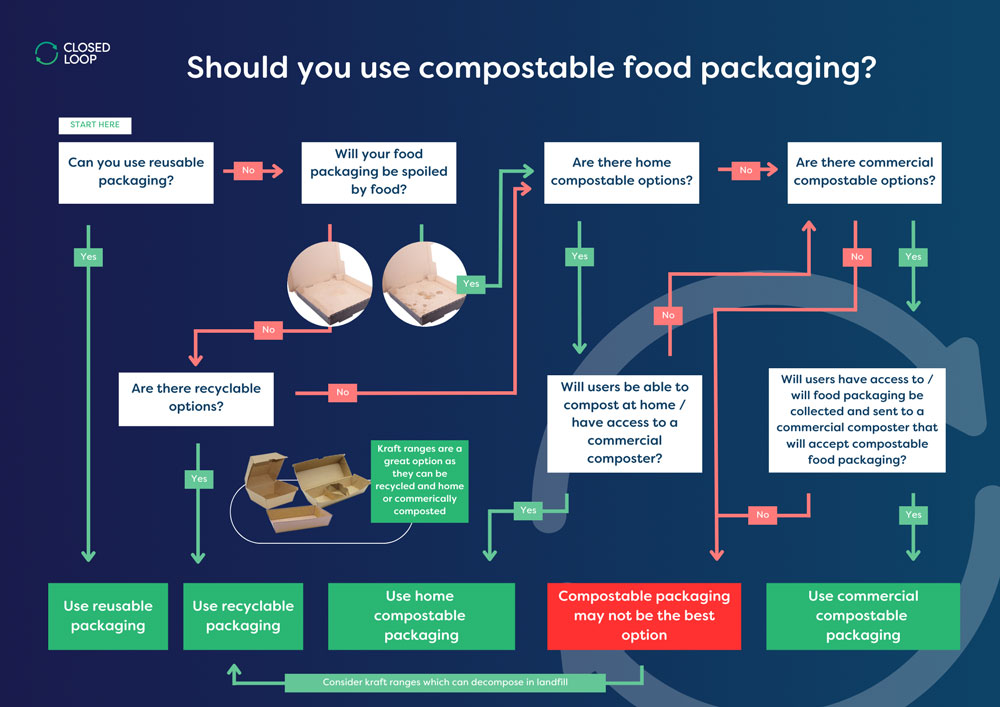
What happens to compostable food packaging?
Commercial compostable food packaging requires composting facilities to compost
Commercial composting is only possible if there is a commercial composting facility that accepts commercial compostable packaging and there are structured collections (i.e. bin collections or outsourced waste management companies). Packaging that is commercially compostable will not break down in a home composting system – it only breaks down in commercial composting conditions.
There are few commercial composting facilities in Australia at present that accept compostable food packaging, and these facilities are only open to businesses and not to the public.
If commercially compostable food packaging ends up in a general waste bin in public, it will not be separated and sent to a commercial composter facility, it will end up in landfill and not break down into soil, as it would in a commercial composter. It will also emit greenhouse gases if disposed in landfill as opposed to a commercial composter.
Home compostable food packaging can be composted at home
Individuals must first discern whether their food packaging is home or commercial compostable, as most of the time the term ‘compostable’ is used without clarification on what conditions it needs to compost under. Home compostable food packaging can either be fed to worm farms or home composts to be made into compost.
FAQs
What is compostable food packaging?
Compostable food packaging is made from material that can be composted into fertiliser in a particular time frame and under certain conditions (i.e., home or commercially compostable).
Can compostable packaging be recycled?
Compostable food packaging cannot be recycled in traditional recycling systems. However, it can be composted and make into fertiliser.
Can compostable packaging go into food waste bin?
This will depend on where your food waste goes and the type of compostable food packaging you have. Home compostable packaging or commercial compostable may be accepted in your FOGO bin depending on your council. Compostable packaging may be accepted at events or large venues where it is managed by staff and taken to a commercial composting facility.
The packaging ranges previously sold by Closed Loop, plus much more, can now be sourced through PAC Trading. Contact PAC via email at dispatch@pactrading.com.au or their website https://www.pactrading.com.au.




